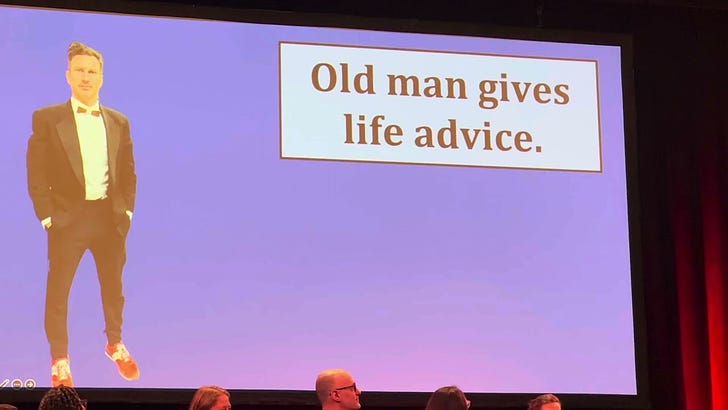Free speech debate: Creating a more positive climate on college campuses
Issue 133: We debate the campus protests and free speech—and lay out a vision for a culture of inclusion and free speech on campus
As a new school year begins, we’ve been reflecting on last year’s student protests and the discussions about free speech that continue to take place in the public sphere. We’ve been debating these issues privately with each other and with our colleagues, but we decided to talk live about it on a podcast and share it with our subscribers. You can listen to the full discussion here:
In our conversation, we debate the complexities of handling free speech issues on college campuses, especially in light of recent protests and the actions of university leaders. We examine the consequences of various university leadership and policy decisions, such as bringing police onto campuses during protests, and explore how these decisions have exacerbated conflict.
We tried to focus on principles that universities should consider—not only for the next year, but for many years ahead. It’s clear that their current models were not well designed to deal with the Gaza protests and many universities are changing. One trend seems to be that universities are adopted the Chicago Principles, establishing norms of “engaged disagreement”, as well as embracing institutional neutrality.
We weigh in on these issues from a social identity perspective (e.g., how campuses can foster free speech, a vibrant education, and healthy dissent without being hijacked by extremists). Specifically, we discuss several key points:
The Role of Universities in Handling Free Speech:
We explore the historical context of universities as spaces for dissent and debate and the modern challenges of managing diverse opinions while maintaining safety and inclusivity.Trust and Communication Strategies:
We emphasize the importance of building trust between students and university faculty and administration, and we offer concrete suggestions for university leaders to engage more directly and transparently with student groups.Balancing Free Speech and Protecting Vulnerable Groups:
We discuss the features of different free speech models, including the Chicago principles and an alternative model from Professor Eli Finkel (“Can universities take the fear out of debate in our hostile climate?”)Positive Examples and Alternative Approaches:
We also discuss examples of successful university responses to protests, such as building relationships through open dialogue and healthy reactions to student activism.Future Directions for University Policies:
We end with recommendations for universities to amend their free speech policies, promote healthy discourse, and better serve their diverse communities.
You can listen to the podcast using the embedded audio file above, or on Spotify and Apple podcasts. Let us know what you think in the comments—our thoughts are still evolving on this issue and we welcome constructive dissent.
News and Updates
What makes us pick one party over another? What role does social identity play in national politics? Why do we view the other side as the problem? Jay does an interview on Debating Without Hate for Starts with Us.
Catch up on the last one…
Last week we shared some inspirational words from a middle school graduation speech by Ben Mook that moved us. We felt like it was promising life advice for youth around the world—share it with someone you love who would benefit.
Life Advice for The Next Generation
Every year there are a few viral graduation speeches that go viral. These speeches are often given at colleges with the goal of making the next generation aware of the opportunities ahead of them, along with their responsibilities. Some times, they also often brilliant advice about how to live the good life.



